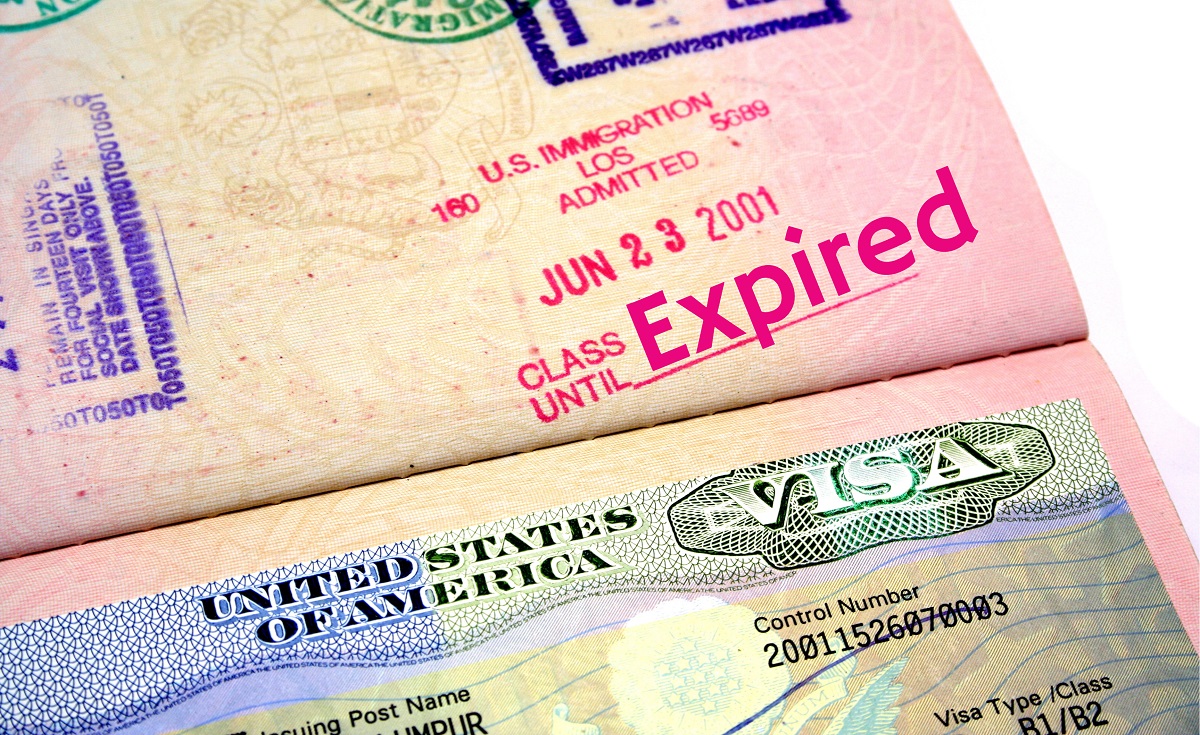
When you’re preparing an adjustment of status application package, it goes without saying that you need to be eligible. However, it’s also important that you remain eligible throughout the process and until the green card is issued. Avoid an adjustment of status denial due to changes in circumstances.
In this article, we’ll explore the most common types of post-filing changes that lead to adjustment of status denials. Remember, CitizenPath is here to help you with practical tools and resources to guide you through the process.
What Are "Changes in Circumstances?"
Reasons for a Denial Due to Changing Circumstances:
- Failing to Maintain Status
- Death of a Petitioner
- Beneficiary Gets Married
- Beneficiary Gets Divorced
- Criminal Charges or Arrests
- Rescinded Job Offer
- Changes in Financial Situation
How Travel Abroad Can Lead to Adjustment of Status Denial
How to Respond to an Adjustment of Status Denial
How CitizenPath Helps You Avoid Denials
What Are "Changes in Circumstances?"
It’s not uncommon that someone files Form I-485, Application to Register Permanent Residence or Adjust Status, and then their circumstances change. Generally, a change of address or a new child isn’t significant enough to disrupt the application process. But other changes in circumstances can render the application ineligible and even leave the applicant exposed to removal (deportation) proceedings.
The adjustment of status time line can take about a year. Review your application periodically while the I-485 is pending, particularly before an interview. Updating U.S. Citizenship and Immigration Services (USCIS) on minor changes can often wait until the interview. More significant changes may require immediate action.
Reasons for a Denial Due to Changing Circumstances
There are a variety of life events and changes that could potentially alter your eligibility or cause USCIS to more closely scrutinize your application. Here are some of the more common reasons for an adjustment of status denial due to changes in circumstances:
Failing to Maintain Status
Foreign nationals who are filing Form I-485 must generally maintain their lawful status from the date of entry through the date that USCIS approves adjustment of status. Depending on the immigrant visa category, USCIS may deny applications if the intending immigrant overstays a visa or never had lawful status.
Likewise, an F-1 student can fall out of status by failing to meet academic requirements, such as not enrolling in a full course load, withdrawing without authorization, or failing to make satisfactory academic progress. These actions violate visa terms, risking termination of their SEVIS record and loss of legal status in the U.S. A nonimmigrant who does not depart the United States after falling out of status is also in an overstay.
Exceptions exist for immediate relatives (spouses, parents, or unmarried children under 21 of U.S. citizens) and VAWA (Violence Against Women Act) self-petitioners, who may still file Form I-485 with an overstayed visa.
Death of a Petitioner
Historically, USCIS would not approve family-based cases if the petitioner died while the petition was pending. Congress changed that in 2009 with INA 204(l).
Now, a USCIS officer may approve an adjustment of status application if all of the following conditions are met:
- The applicant resided in the United States when the qualifying relative died;
- The applicant continues to reside in the United States on the date of the decision on the pending application; and
- The applicant is at least one of the following:
- A beneficiary of a pending or approved immediate relative immigrant visa petition;
- A beneficiary of a pending or approved family-based immigrant visa petition, including both the principal beneficiary and any derivative beneficiaries;
- Any derivative beneficiary of a pending or approved employment-based immigrant visa petition;
- The beneficiary of a pending or approved Refugee/Asylee Relative Petition (Form I-730);
- A foreign national admitted as a derivative T or U nonimmigrant; or
- A derivative asylee.
This can get complicated. If the petitioner or principal immigrant in your case has passed away, consult with an immigration attorney who can determine if this exception applies to your situation.
Beneficiary Gets Married
In the case of a permanent resident who petitions a son or daughter, it’s important that the son or daughter does not marry. That’s because a permanent resident cannot petition a married son or daughter.
For example, a permanent resident mother files an I-130 petition for her foreign national daughter. Eventually the petition is approved in the F2B category (unmarried adult sons and daughters of LPR). However, the daughter marries before the adjustment application gets approved. Even if the petition has already been approved, the daughter no longer qualifies for adjustment to permanent resident due to the change in circumstance. In fact, she is no longer eligible to immigrate through the F2B category. Her mother may naturalize as a U.S. citizen and then re-petition the daughter in the F3 category (married sons and daughters of U.S. citizens). Of course, this adds significant time and expense.
Beneficiary Gets Divorced
If immigration benefits are based on a relationship with a spouse petitioner or a spouse principal beneficiary, a divorce will likely result in an adjustment of status denial. In fact, even filing for a divorce or separating is enough to invalidate the qualifying relationship.
For example, a foreign national files an adjustment application based on her relationship with a U.S. citizen spouse. However, before USCIS approves the application, the couple splits up. They file a divorce and live in separate residences. The foreign national should expect the adjustment to be denied because there is no longer a qualifying relationship. Although the two are technically married until a divorce is granted, they are not living in marital union.
Criminal Charges or Arrests
Criminal charges or arrests can significantly impact a pending Form I-485 (Application to Adjust Status). USCIS reviews an applicant’s criminal history to determine admissibility. Certain crimes, such as aggravated felonies, drug offenses, or crimes of moral turpitude, can render an applicant inadmissible, leading to denial. Even minor charges, like a DUI, may trigger further scrutiny.
For example, if an applicant is arrested for theft during the I-485 review process, USCIS may consider this a crime of moral turpitude, potentially disqualifying them. Additionally, unresolved charges or failure to disclose arrests on the application can harm credibility. Applicants must provide court records, evidence of rehabilitation, or legal waivers (if applicable) to address these issues and potentially continue their adjustment of status process. If arrested or charged after filing Form I-485, please discuss the event with an immigration attorney.
Rescinded Job Offer
A rescinded job offer can jeopardize a pending adjustment of status (Form I-485) if the application is employment-based. USCIS requires proof of a valid job offer or continued employment as a condition for granting permanent resident status in most employment-based categories. If the employer withdraws the job offer, the applicant’s eligibility is compromised, potentially leading to denial.
For instance, if an applicant’s I-485 is based on an approved Form I-140 for a specific position, and the employer rescinds the offer before the I-485 is adjudicated, USCIS may deny the application. However, if the I-485 has been pending for at least 180 days, applicants may qualify to port their petition to a similar job under the American Competitiveness in the Twenty-First Century Act (AC21).
Changes in Financial Situation
A change in financial situation can affect a pending I-485, particularly for family-based applications requiring the Affidavit of Support (Form I-864). Generally, the petitioner must demonstrate sufficient financial resources to meet 125 percent of the federal poverty guidelines. If the petitioner loses their job, experiences a significant income reduction, or faces unexpected financial hardships, it may result in USCIS questioning their ability to financially support the intending immigrant. Using a joint sponsor at this point may mitigate the problem.
Applicants should monitor their own financial situation, as USCIS may reinstate stricter self-sufficiency requirements like Form I-944, previously used during the Trump administration. This form required evidence of financial stability, such as income, assets, and credit history. If reinstated, applicants must prove they won't become a public charge, affecting their eligibility.
How Travel Abroad Can Lead to Adjustment of Status Denial
Traveling abroad with a pending I-485 application poses risks that could result in denial of your adjustment of status. There are two primary ways this may happen:
- Departing the U.S. Without Advance Parole
Leaving the U.S. without first obtaining advance parole (Form I-131) while your I-485 is pending will generally cause USCIS to consider your application abandoned. This applies even if your trip is brief and for urgent reasons. For example, if you leave for an emergency family visit without securing advance parole, USCIS may deny your adjustment of status application upon learning of your departure. Certain visa holders, like H-1B and L-1 visa holders, may be exempt from this requirement, but it’s critical to confirm your status before traveling.
- Reentry After Triggering Inadmissibility Bars
If you accrued unlawful presence in the U.S. before filing your I-485, traveling abroad can trigger inadmissibility bars upon your attempt to reenter. For instance, if you were unlawfully present for over 180 days, leaving the U.S. can activate a three-year bar; over one year of unlawful presence triggers a ten-year bar. Even with advance parole, these bars can prevent reentry and make adjustment of status impossible.
To avoid these risks, adjustment of status applicants should obtain advance parole before traveling abroad and consult an immigration professional if you’ve accrued unlawful presence or are unsure about the implications of travel.
How to Respond to an Adjustment of Status Denial
If USCIS denies your adjustment of status application, the denial notice (Form I-797) will detail the reasons. Here’s how you can respond:
- File a Motion to Reopen or Reconsider
If you can provide new evidence or believe USCIS made a legal error, you may file Form I-290B to reopen or reconsider your case. For example, if your relationship ended but you qualify for a waiver, include evidence to support your eligibility.
- Reapply with Updated Information
In many cases, it may be easier and less expensive to reapply for adjustment of status. For example, if your financial situation has stabilized or you’ve found a new job, submit a new application with updated evidence.
- Consult an Immigration Attorney
Complicated cases, such as those involving criminal charges or relationship changes, benefit from professional legal advice. An attorney can help you explore waiver options or alternative paths to permanent residency.
Changes in circumstances during the adjustment of status process can complicate your immigration journey, but they don’t have to end it. By understanding how these changes impact your application and taking proactive steps, you can overcome challenges and keep your path to permanent residency on track.
CitizenPath is here to empower you with the tools and resources you need to succeed. Together, we can navigate the complexities of immigration and help you achieve your goals.
Our Job is to Help You Avoid an Adjustment of Status Denial
At CitizenPath, we provide affordable, easy-to-use tools that help immigrants navigate the adjustment of status process. Our step-by-step guidance ensures your application is complete and meets USCIS requirements.
CitizenPath provides simple, affordable, step-by-step guidance through USCIS immigration applications. Individuals, attorneys and non-profits use the service on desktop or mobile device to prepare immigration forms accurately, avoiding costly delays. CitizenPath allows users to try the service for free and provides a 100% money-back guarantee that USCIS will approve the application or petition. We provide support for the Adjustment of Status Package (Form I-485), Affidavit of Support Package (Form I-864), and several other immigration services.
Sign up for our newsletter below to receive regular tips, updates, and tools to simplify the immigration process.
Want more immigration tips and how-to information for your family?
Sign up for CitizenPath’s FREE immigration newsletter and
SAVE 10%
on our immigration services







